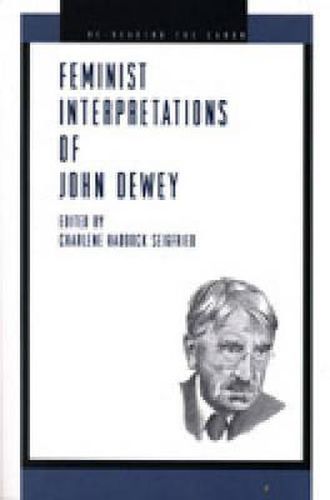Readings Newsletter
Become a Readings Member to make your shopping experience even easier.
Sign in or sign up for free!
You’re not far away from qualifying for FREE standard shipping within Australia
You’ve qualified for FREE standard shipping within Australia
The cart is loading…






This is the first collection of essays to evaluate John Deweys pragmatist philosophy from a feminist perspective. The variety of feminist interpretations offered here ranges from Jane Addams’s praise for his collegial efforts to resolve the problems of the inner city to contemporary comparisons of his approach with Addams’s own chtique of capitalism as patriarchal. In between are essays assessing Dewey’s contributions to feminist theory and practice both in his lifetime and in regard to contemporary feminist approaches to education, subjectivity objectivity and truth, and social and political philosophy. At a time when feminists are questioning and developing alternatives to the scientistic value-free inquiry advocated by logical positivism, the myth of detached observation informing the epistemological turn, rationalistic ethics, and the model of an unattached, nonrelational subject, this book reminds us of Dewey’s early and passionate opposition to the same assumptions and his reconstruction of philosophy as a method of moral and political diagnoses and prognosis.
It has often been remarked that Dewey’s pragmatism provides a genuine alternative to the usual masculmist biases of Western philosophy, and the various essays in this book develop this claim more extensively.
$9.00 standard shipping within Australia
FREE standard shipping within Australia for orders over $100.00
Express & International shipping calculated at checkout
This is the first collection of essays to evaluate John Deweys pragmatist philosophy from a feminist perspective. The variety of feminist interpretations offered here ranges from Jane Addams’s praise for his collegial efforts to resolve the problems of the inner city to contemporary comparisons of his approach with Addams’s own chtique of capitalism as patriarchal. In between are essays assessing Dewey’s contributions to feminist theory and practice both in his lifetime and in regard to contemporary feminist approaches to education, subjectivity objectivity and truth, and social and political philosophy. At a time when feminists are questioning and developing alternatives to the scientistic value-free inquiry advocated by logical positivism, the myth of detached observation informing the epistemological turn, rationalistic ethics, and the model of an unattached, nonrelational subject, this book reminds us of Dewey’s early and passionate opposition to the same assumptions and his reconstruction of philosophy as a method of moral and political diagnoses and prognosis.
It has often been remarked that Dewey’s pragmatism provides a genuine alternative to the usual masculmist biases of Western philosophy, and the various essays in this book develop this claim more extensively.